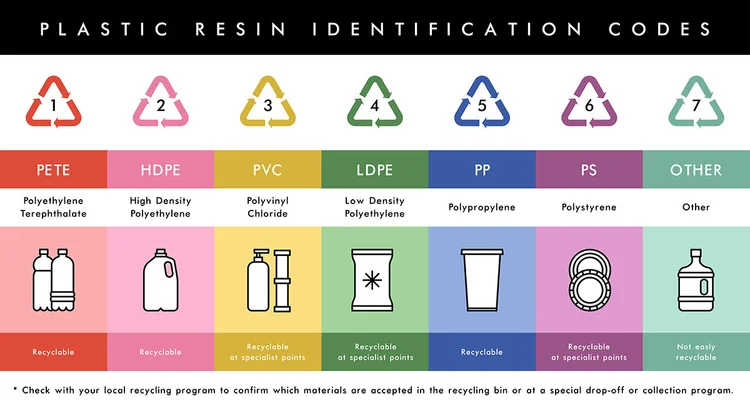Recycling vs Composting: Evening the Scales
Previously, one of the differentiators in the debate between recycling vs. composting was the industrial scale at which each method of extending the end-life of given items was able to reach. Recycling has become more industrialized and widespread as a way to limit the amount of aluminum, glass, and plastics filling trash heaps and flooding oceans. Composting, until recently, has been viewed as an individual solution to limiting the amount of biodegradable and organic waste that ends up in landfills. But commercial composting has developed in recent years to provide more options in large-scale reuse efforts.
Recycling vs Composting: What’s The Difference?
While it’s really a competition these are often used together to show off any given item’s eco-friendly qualities. Given that they’re often used together, it would be helpful to understand what each means, how they’re different and what little they have in common so that when you no longer are in need of an item or packaging, you know what to do with it.
Recycling means that something is reclaimed and then broken down or melted into raw materials that can then turn around and be used to manufacture something new. When it comes to recycling, there are two main subcategories, post-consumer and post-industrial.
Post Consumer: Any item that is recycled, sorted, and sent to a reclaimed once it has come to the end of its life.
Post Industrial: Any scrap material that was generated during the manufacturing process, which can then be melted down and put back into the manufacturing process.
Another distinction to make when something is recycled is downcycling versus item-to-item recycling.
Downcycling: A given item has been made into a completely different good. Ex: Plastic Milk Jugs recycled into composite lumber for a park bench
Item-to-Item: A given item is recycled back into itself or something very similar. Ex: Plastic Bottles recycled into RPET plastic cups.
Composting is a much simpler process. Composting items put into a compost bin, pile, or composting facility use the natural biodegradation of organic materials to break down into compost, which can then be used in backyard gardens, agricultural land, or as a soil amendment. You can learn more about different types of composting here.
Recycling Facilities and Plastic Resin Codes

Developed in the late 1980s, the ASTM International Resin Identification Coding System (RIC) is a set of symbols appearing on plastic products that identify the type of plastic used to make the product. Plastic resin codes are essential for recycling facilities and programs, as they make it possible to sort similar plastics into groups that can then be recycled.
Without the plastic resin codes, large-scale recycling programs wouldn’t be possible as the different types of plastic cannot be processed together. Each has different chemical makeups and requires different techniques to be reused as new products.
The Rise of Commercial Composting Facilities
While recycling efforts have been made regarding plastics, the organic waste remains the largest single source of municipal solid waste in the United States. Composting is one of the easiest ways to extend the life of products and foods you consume. Instead of shipping organic waste off to the landfill, these materials are recycled via a natural process into a fertilizer that can enrich soil and plants. Any organic material can be processed via composting, and there are several types of composting you can use at your own home or property.
However, commercial composting facilities offer large-scale composting capabilities and the ability to deal with some kinds of organic waste — like meat and bones — that may be problematic for a simple home compost pile. Composting is the most environmentally beneficial way to handle organic waste including yard trimmings and biodegradable packaging/single-use items. Commercial composting adds to the scope and impact it can have.
Find a Composter in Your Area
With commercial programs becoming more available, you don’t have to build your own pile to take advantage of this process's benefits. Green Paper Products has produced this helpful guide to finding a composter in your area.
You can also make a difference through the products you purchase. Green Paper Products offers a wide range of compostable products for both household and business use. Contact us to learn more.
Are Compostable Products Right For Me?
Compostable products are tested to meet the ASTM 6400 or 6868 standards for commercial composting. They are intended for disposal in commercial composting facilities and will not break down in a landfill or other environments. Commercial composting is not available in all areas, and different states have different requirements for composting. Please check locally to ensure you have access to commercial composting before purchasing compostable products.